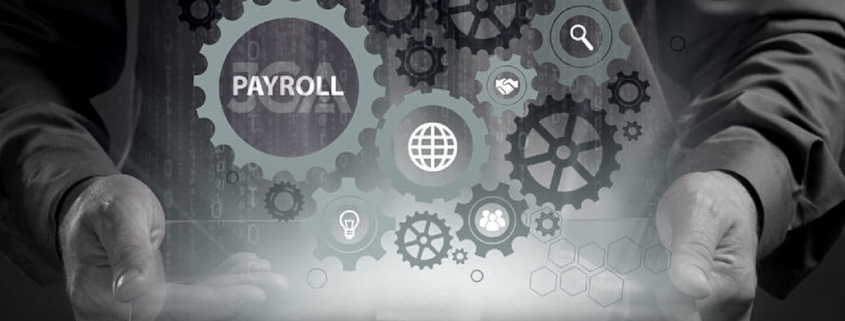How is the digital age affecting payroll?
The digital age is transforming all businesses, without exception. Payroll is no different and like other back-office functions has naturally been impacted by the digital age. There have been many changes to payroll – some of which that have crept in overtime and some that hit with a big bang. All have been affecting how payroll operates in many different ways, such as through the use of cloud-based systems, mobility and robotic process automation (RPA). Read on, and I will explore each of these in greater depth.
Digital payroll management and automation have been one of the primary ways in which payroll is changing as a direct result of the digital age. This automation and digitisation of processes are highly beneficial because, as Capgemini highlight, it allows payroll to be ‘significantly more productive’. RPA also reduces the risk of human error within payroll systems. As long as the correct information is input by the payroll administration in the first place, the system will take care of much of the rest. The time saved by payroll companies can thus be directed towards other activities, and overall digital advancements provide the opportunity for payroll to be more efficient.
Meanwhile, Forbes reports that one of the fundamental changes brought about by digital has been the use of cloud-based systems in payroll. Such systems are web-based and no longer require a person to be logged in on a specific machine to gain access to the data within. As long as an internet connection is available, anyone should be able to access the system at any time with their login details. The hosting of data in the “cloud” rather than on-premises has therefore led to the opportunity for increased mobility. One of the significant advantages of this is that payroll administration can be carried out from anywhere and employees can access the data via mobile devices, in addition to on their desktops in the office. One of the benefits of this digital advance is that there should be fewer payroll deadlines missed. Data seen by one person will be consistent with that observed by another, helping to reduce consistency issues, lower complexity and aid problem-solving. Fraud is also easier to monitor for and track, as all of the data is accessible in the same place.
The benefits of using a digital cloud-based system do not end there, and one improvement is that IT staff are not needed within the payroll firm to manage the system. Cloud-based payroll systems controlled by the provider, who take care of all of the maintenance and upgrading activities themselves. This digital advantage has typically allowed payroll companies to make savings regarding IT costs associated with maintaining payroll systems. The risk is also transferred, as the company hosting the payroll system is responsible for resilience in the case of issues such as natural disaster – though payroll companies should undertake due diligence to ensure that there are the appropriate levels of backups in place. Some aspects of data security are also managed by the provider, though of course the business and individuals within it still have responsibility for proper security protocols, such as keeping passwords safe. The use of digital solutions such as cloud-based systems allows payrolls to scale systems up and down when needed without increasing cost permanently, as usually, companies pay for what they use when they use it. The result is a no more requirement to pay for additional, expensive servers, “just in case”.
Also, robotic process automation is already impacting the payroll industry, and this digital change offers significant benefits to payroll companies and teams. Robotic process automation is the utilisation of robotics technology to carry out processes and deal with transactions. There is a wide range of activities where these could be applied. Ernst & Young have explained that any standard and repetitive payroll activities that are carried out could be performed by robots rather than machines. I am of course not referring to walking, talking robots but rather, software that can learn. Any tasks that have clear, pre-programmed rules and work with structured data can be undertaken by robotic process automation (RPA) technology, where logical decisions can be deduced. Specific areas where RPA can help is in automating data entry, carrying out reconciliation and validating data, reviewing quality, and working within simple business rules. Data processing errors and data compliance problems might be handled by RPAs, such as the discrepancies between data that payroll has and that which HR has stored.
Overall, the digital age has brought and continues to bring significant benefits to payroll teams and organisations. Companies that have not yet adopted digital technologies should consider doing so, as the productivity and cost efficiency benefits of doing so can be considerable.
How have you seen the digital age affect payroll? Please comment and share!
This article was written by Abu Choudhury, Director at JGA Recruitment – the UK’s Premier Payroll & HR Recruitment Consultancy
If you are looking for expert talent in the fields of Payroll, HR or Reward, then please call me or email me and I would be delighted to discuss how we can help.
Abu Choudhury | Director
JGA Recruitment | JGA Payroll & HR Recruitment
Email: abu@jgarecruitment.com | Tel: 01727 800 377





Leave a Reply
Want to join the discussion?Feel free to contribute!